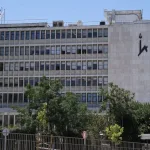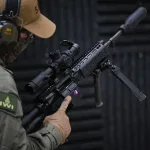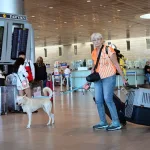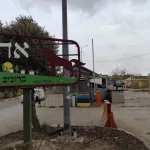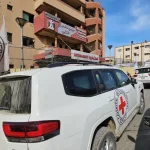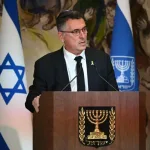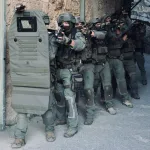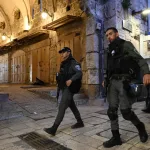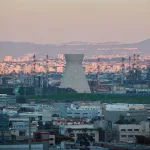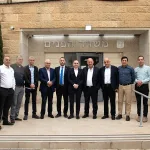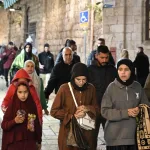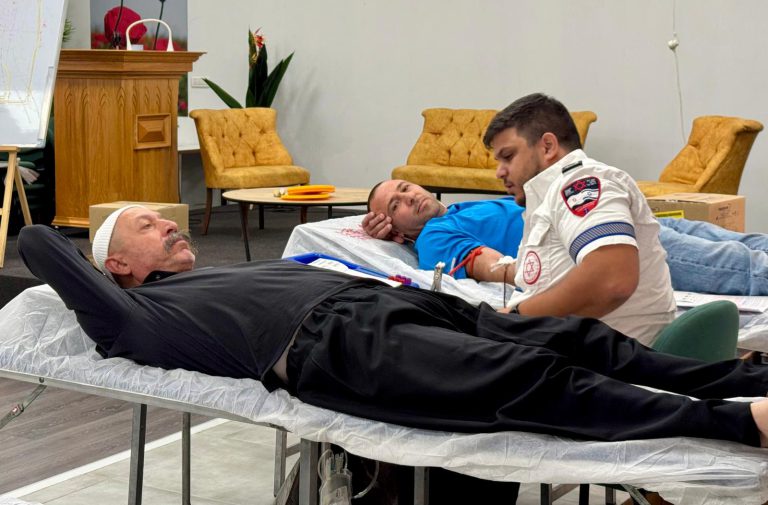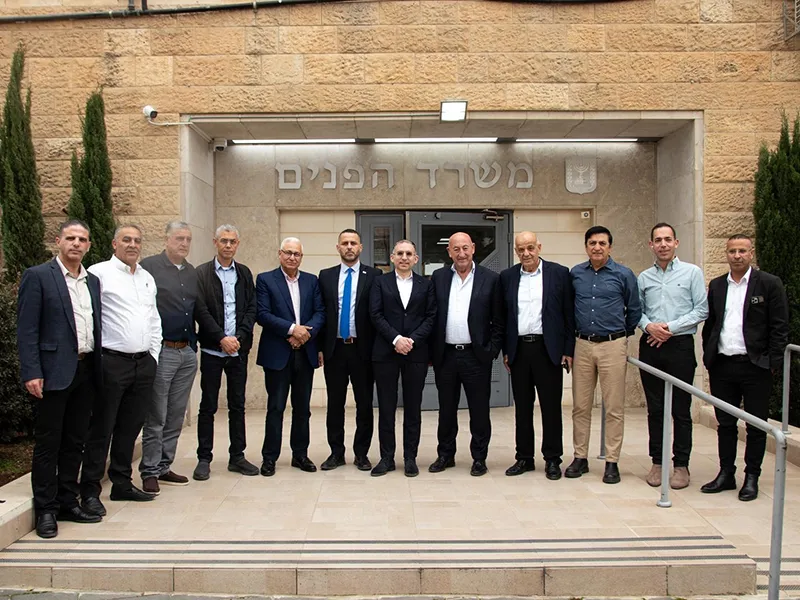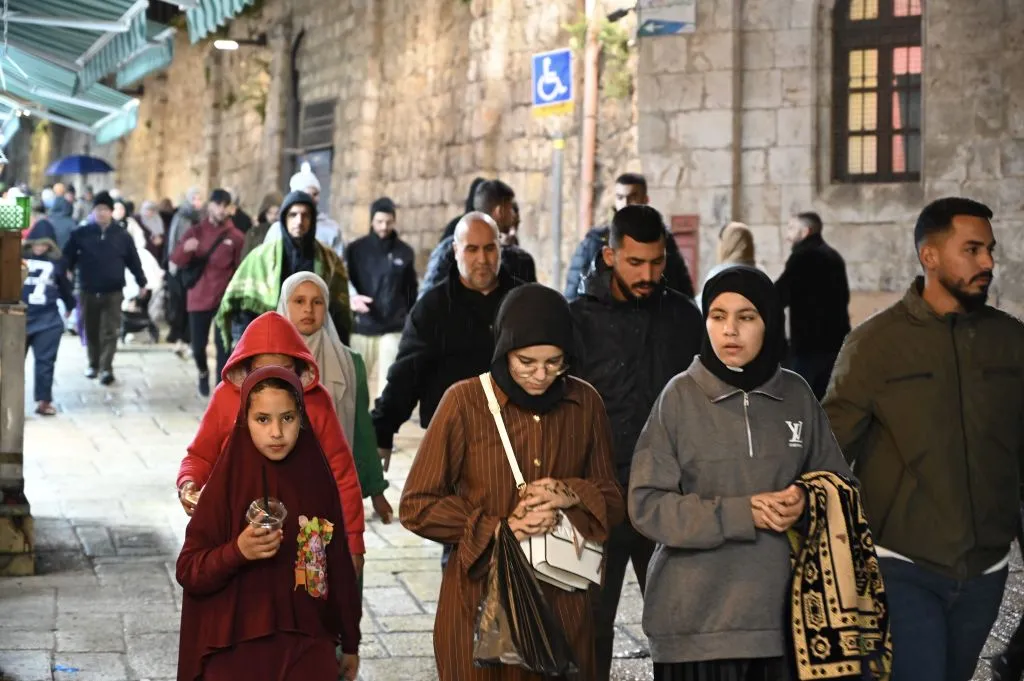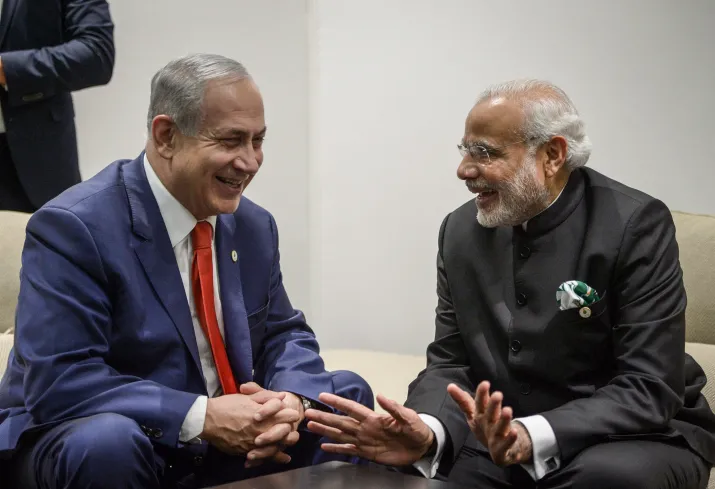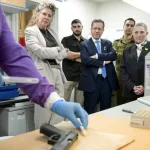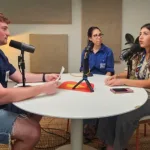Jerusalem, 21 July, 2025 (TPS-IL) — Israeli national emergency organization Magen David Adom (MDA) opened a blood donation center on Sunday in the Druze-majority village of Isfiya in northern Israel to collect blood for Syrian Druze wounded in clashes.
A temporary blood donation facility was set up by the northern Israeli Druze town of Isfiya. Dozens of Druze men and women had gathered outside when it opened at 4:00 PM.
“There is no way to transfer the blood samples to Syria, at least for now, but we hope our wounded brothers will be allowed to receive medical treatment in Israel,” Wafa Rachruch, a blood bank employee in charge of Isfiya’s temporary blood donation facility in Isfiya, told The Press Service of Israel.
Rami, an Isfiya resident in his 40s who was accompanied by his teenage daughter, told TPS-IL it was not the first time he had donated blood, but this time was “special.” “It’s for our brothers,” he said.
Unlike many of those who gathered at the facility, Ramiu said he doesn’t have immediate family in Syria. “But all the Druze are family,” he insisted. “They are my brothers.”
According to Rachruch, there were ten times more people at the blood donation facility on Sunday than there typically are at MDA stations in Israeli Druze villages. “People are very concerned about their families on the other side of the border,” he explained.
After just two hours of operation, 40 blood samples were collected in Isfiya.
The initiative to open the facility was the brainchild of Saleh Badriya, the CEO of the Israeli-Druze Center in Isfiya. The center works to strengthen Israeli-Druze ties. Badriya worked as a paramedic for 15 years, and several of his relatives were killed in the clashes in the Syrian city of Suweida. Badriya was among several hundred Druze who crossed into Syria last week in a show of solidarity with the Syrian Druze massacred first by their Bedouin neighbors, and then by regime forces.
Struggling to remain optimistic, he told TPS-IL it was hard to believe the remaining Syrian part of his family would be safe there.
“Sunni jihadists view us Druze as renegades, and I am not sure at all the new leader can do anything about it, even if he wanted to,” Badriya said.
Around 1,100 people were killed in several days of clashes between Syrian Druze and Sunni Bedouins. Soldiers loyal to the government of interim President Ahmad al-Sharaa backed the Bedouins. A ceasefire appeared to be holding and Israel began delivering humanitarian supplies to Suweida.
Israel’s Druze community of 152,000 has been calling on the government to take stronger measures to protect their co-religionists in southern Syria. Around 40,000 Druze live in the southern Syrian provinces of Quneitra, Da’ara and Sweida under Israeli protection. Netanyahu has called for the demilitarization of southern Syria.
The Druze trace their ancestry back to the Biblical figure Jethro, the father-in-law of Moses. In Israel, the Druze serve in senior positions in public and military life, and the bond between Jewish and Druze soldiers is referred to as the “covenant of blood.” The Druze speak Arabic but are not Muslim.
The Druze living in the Galilee and Mount Carmel areas sided with the Jews in 1948 during Israel’s War of Independence, opted to be part of Israeli society and established themselves in all areas of public life.
When Israel captured the Golan Heights during the Six-Day War of 1967, the Golan Druze refused Israeli offers of citizenship, believing Syria would recapture the plateau. But attitudes have changed since the Syrian Civil War broke out in 2011.
Israel sent forces into the 235 sq km buffer zone to prevent Syrian rebels from approaching the border when the regime of Bashar Assad collapsed in December. Israel also launched waves of airstrikes on Syrian army assets and Iranian stockpiles to prevent them from falling into the hands of radical Islamists.
While Israeli forces have briefly entered the buffer zone in the past, December’s takeover marked the first time since its establishment that the IDF set up positions there. The demilitarized zone was established with a ceasefire in 1974 that ended the Yom Kippur War.
In May, the Israeli army set up a field hospital to treat civilians near the Syrian village of Hader.
Israel considers the 1974 ceasefire agreement void until order is restored in Syria.





